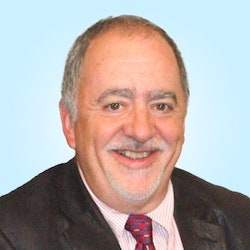Bar license regulations and rules were devised in another era and power rests primarily with the states to modify them. Lawyers get barred in one state and cannot practice in another state without an exception, temporary permission, or reciprocity—all a hassle to navigate. In the last decades, increasingly clients and lawyers have begun to ask why, and many have answered. Speakers will give an overview of the movement to change Rule of Professional Conduct 5.5 on multi-jurisdictional practice and the unauthorized practice of law, lay out ways to make your bar license as mobile as possible, discuss the perils of advertising the ethics rules have created, and try their best to predict where the train is heading. This will be a lively discussion with very current, in-flux information.
Learning Objectives:
- Get a deeper understanding of the rules around where and how one practices, and how to navigate them
- Learn the importance of RPCs 5.5 and 8.5, choice of laws
- Grasp the patchwork of lawyer marketing rules across the states and perils hidden there
- Get the scoop on proposed changes to RPC 5.5 and responses from states and organizations
- Introductory Overview
- Brief introduction of the presenters and their organizations
- Statement of topics to be covered and anticipated take-aways
- History of RPC 5.5
- Responses From the States on Proposed 5.5 Changes
- Predictions As to Where 5.5 Is Going
- Where Lawyers Can Practice Now
- Temporary
- Permanent
- Intersection of 5.5 and 8.5 (Choice of Law)
- Maximizing Versatility in Your Law License
- Where You Can Safely Market Your Practice
- MJP and UPL Issues in Law Firm Business Development
- Bar Reciprocity
- Discipline From Multiple States/Entities
- Status of 5.5. Working Group
- Recent Opinions
- Questions & Answers
This webinar is divided into section summaries, which you can scan for key points and then dive into the sections that interest you the most.
Please note this AI-generated summary provides a general overview of the webinar but may not capture all details, nuances, or the exact words of the speaker. For complete accuracy, please refer to the original webinar recording.

The American Immigration Lawyers Association
Charity Anastasio is Practice and Ethics Counsel for the American Immigration Lawyers Association’s Practice and Professionalism Center in Washington D.C. She received her JD from Seattle University School of Law in 2007 and opened a solo practice in 2008 focusing on estate planning, probate, and family law. In 2013 she joined the Washington State Bar Association’s Law Office Management Assistance Program. In 2015 she became the Director of Profession and Practice Advancement at the Maryland State Bar Association, where she oversaw Law Office Management Assistance and member benefits for a year and a half. In 2017 she joined AILA. Charity advises members on ethics and practice management issues through one-on-one consultations, publications, and presentations, and collaborates with several committees and interest groups. She is a member of the ABA Law Practice Division, was named an ABA 2020 Women in Legal Tech Honoree, and a 2024 V|Lex/Fastcase 50. Read More ›

HTMLawyers, Inc.
Micah U. Buchdahl is an attorney focused on assisting law firms with business development initiatives. He is past Chair of the American Bar Association’s Standing Committee on Continuing Legal Education and a past chair of the ABA’s Law Practice Division. Based in Moorestown, New Jersey, he is president of HTMLawyers, Inc., a law marketing consultancy. Micah is a member of the Association of Professional Responsibility Lawyers (APRL). Read More ›
*CLE credit is only available to Justia Connect Pros. Not a Pro? Upgrade today>>
Status: Approved
Credits: 1.00 Legal Ethics
Earn Credit Until: June 30, 2026
Status: Approved
Credits: 1.00 Ethics
Earn Credit Until: February 28, 2026
Status: Approved
Credits: 1.00 Legal Ethics/Professional Responsibility
Earn Credit Until: June 30, 2026
This presentation is approved for one hour of Legal Ethics CLE credit in California, and one hour of Ethics CLE credit in North Carolina. This course has been approved for Minimum Continuing Legal Education credit by the State Bar of Texas Committee on MCLE in the amount of 1.00 credit hours, of which 1.00 credit hours will apply to Legal Ethics/Professional Responsibility credit.
Justia only reports attendance in jurisdictions in which a particular Justia CLE Webinar is officially accredited. Lawyers may need to self-submit their certificates for CLE credit in jurisdictions not listed above.
Note that CLE credit, including partial credit, cannot be earned outside of the relevant accreditation period. To earn credit for a course, a lawyer must watch the entire course within the relevant accreditation period. Lawyers who have viewed a presentation multiple times may not be able to claim credit in their jurisdiction more than once. Justia reserves the right, at its discretion, to grant an attendee partial or no credit, in accordance with viewing duration and other methods of verifying course completion.
At this time, Justia only offers CLE courses officially accredited in certain states. Lawyers may generate a generic attendance certificate to self-submit credit in their own jurisdiction, but Justia does not guarantee that lawyers will receive their desired CLE credit through the self-submission or reciprocity process.



